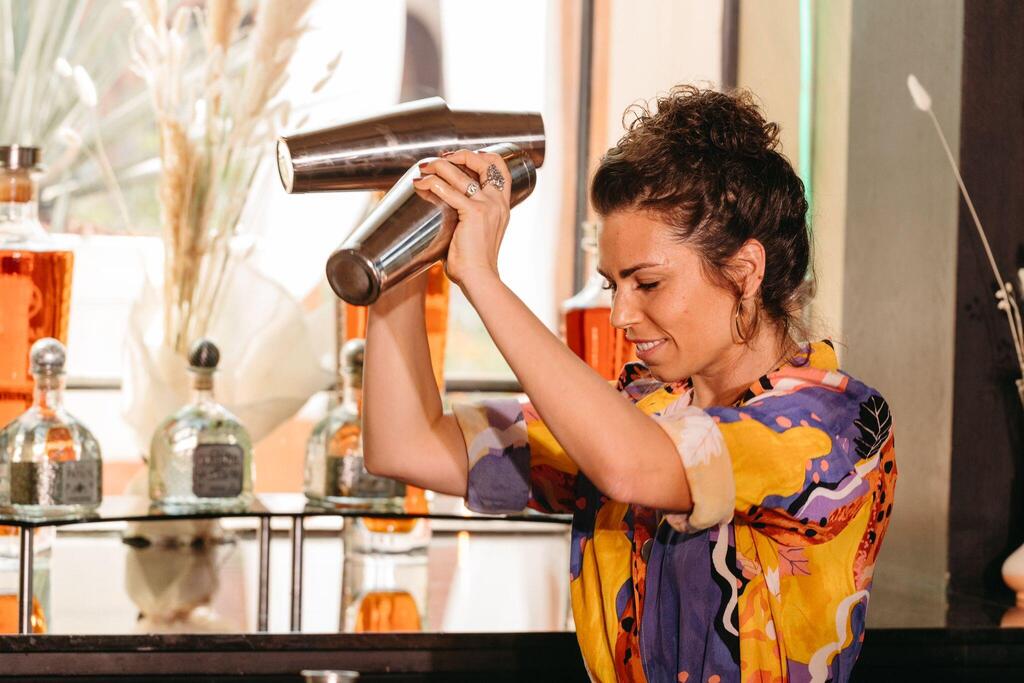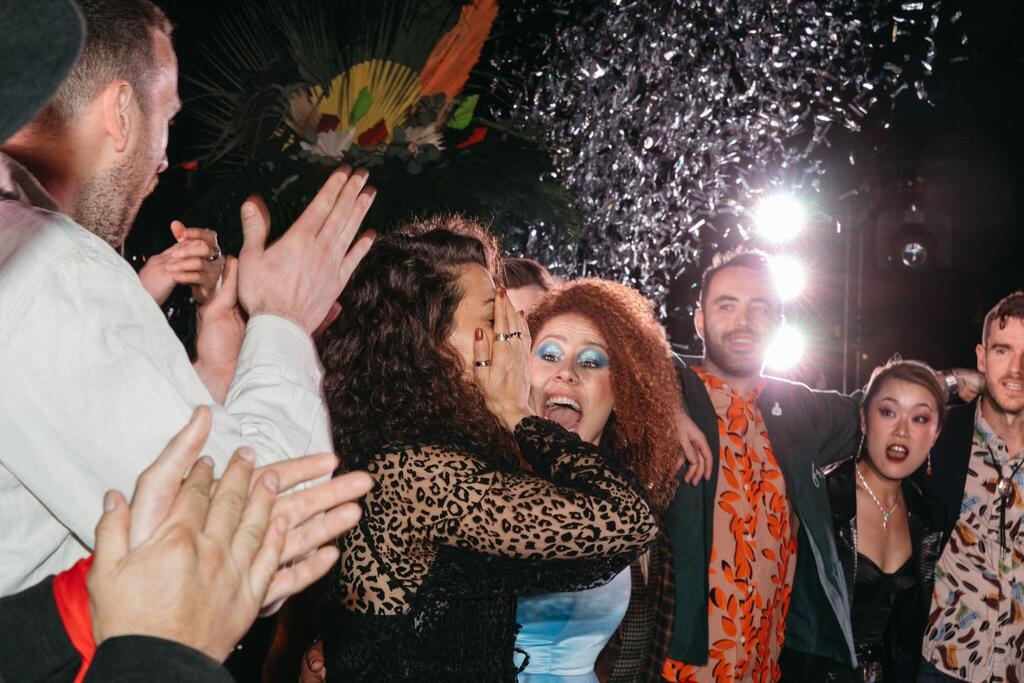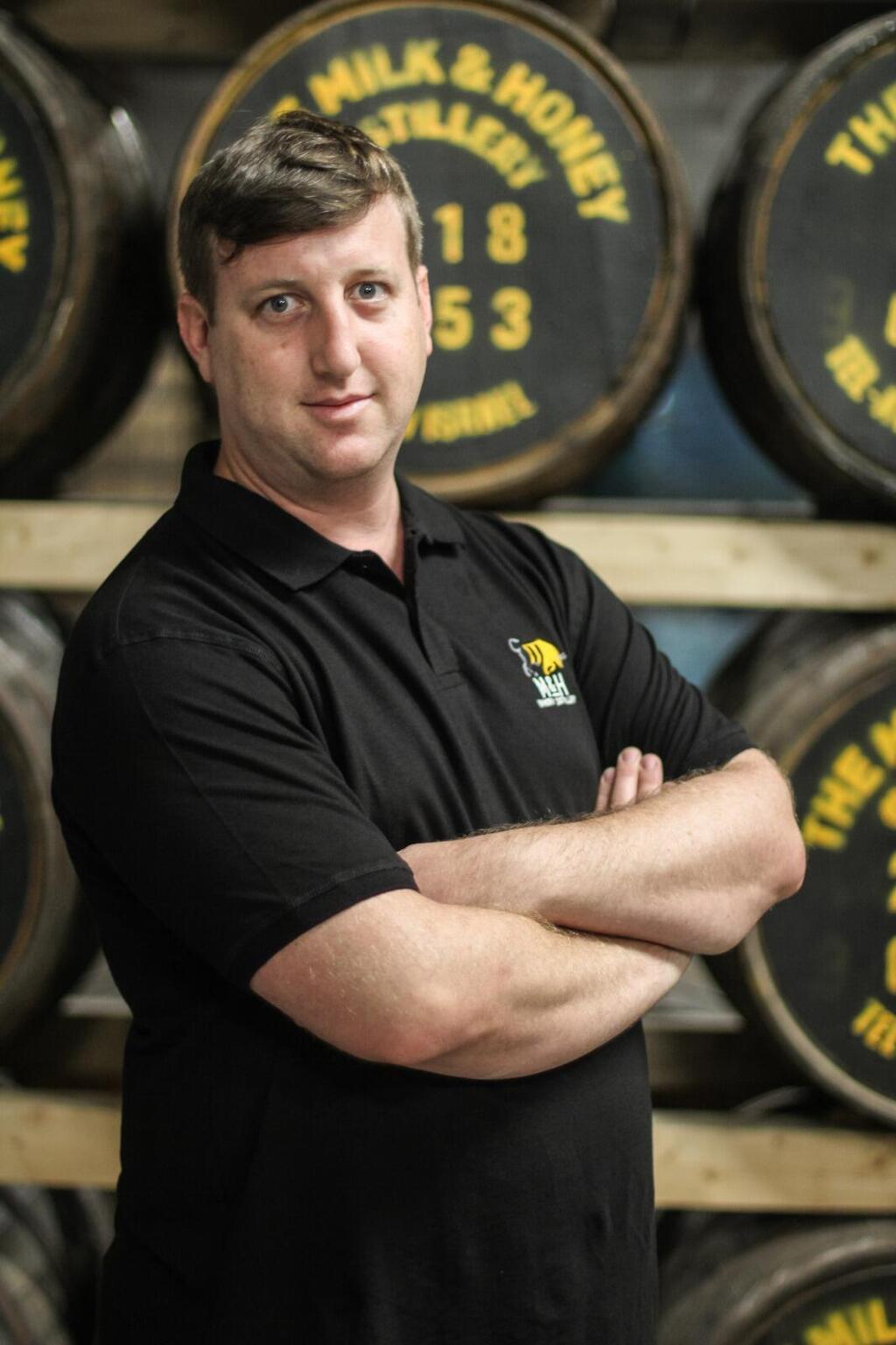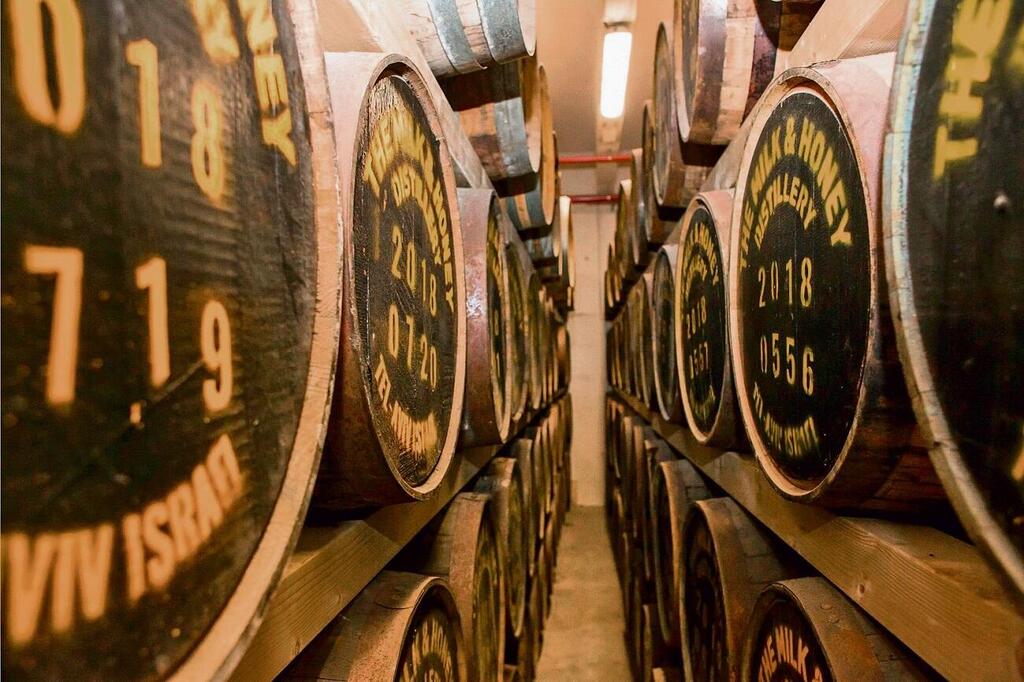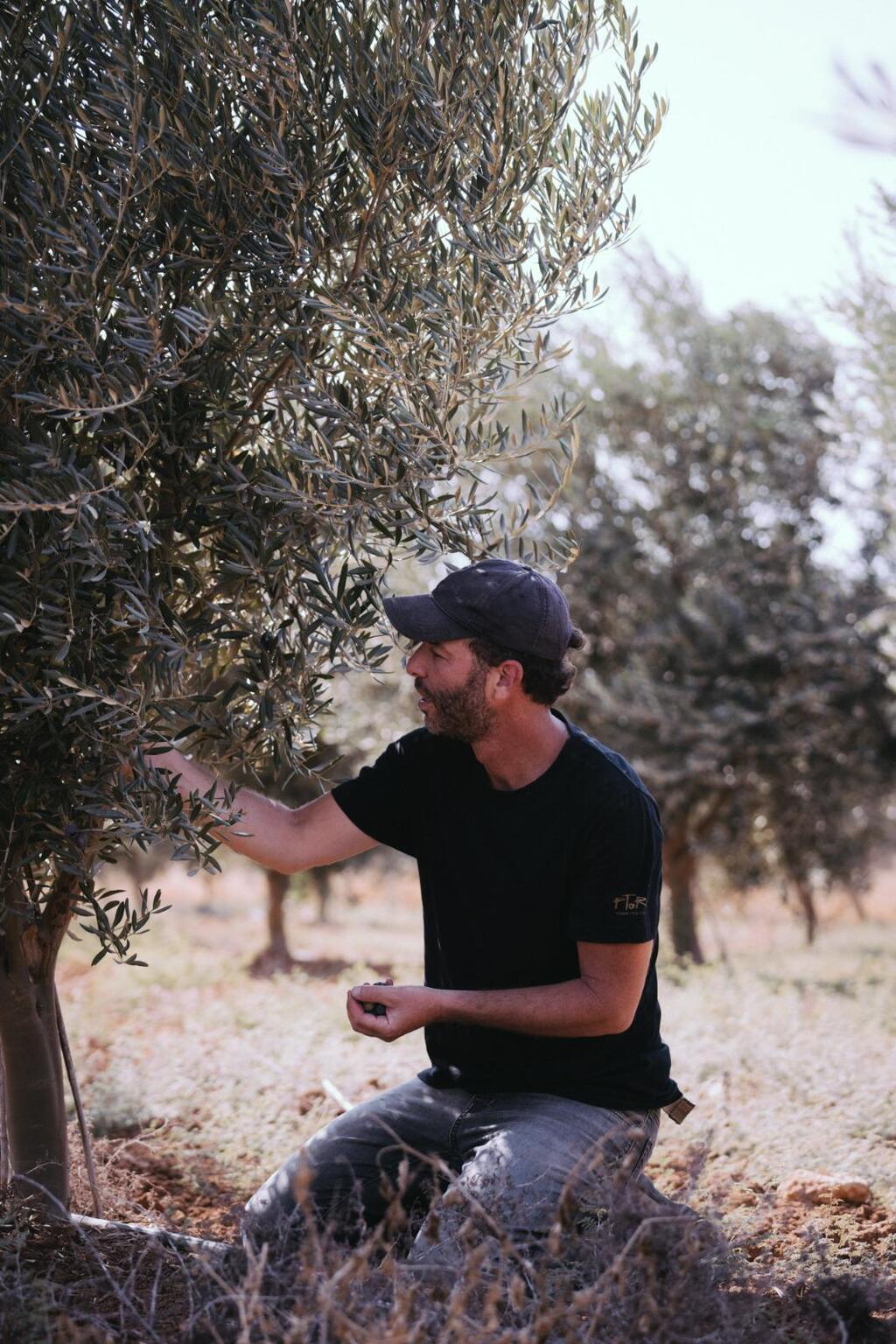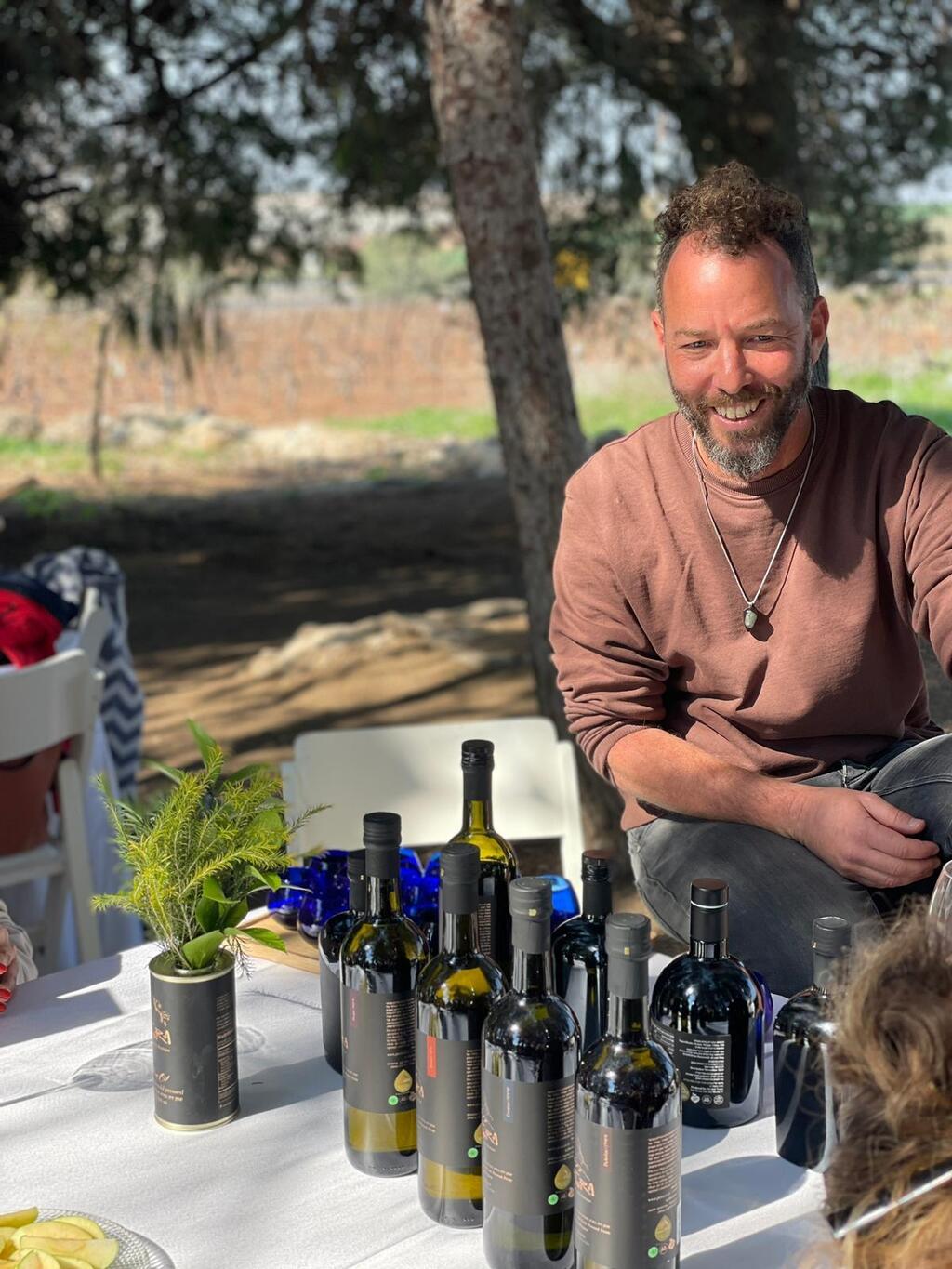In the past few days, three Israelis who excel in the food and drinks industry have been awarded prestigious prizes. This not only brings pride to both Israel and the industry, but also serves as a significant addition to the winners' resumes, showcasing their expertise in producing high-quality whiskey, olive oil, and bartending - all made locally.
Other stories:
Mor Koral, mixologist - World's best bartender
In a spirited triumph, 32-year-old mixologist Mor Koral has taken the world's bartending scene by storm.
The mastermind behind "Salt&Spirit", a craft cocktail venture renowned for its bespoke menus and event catering, Koral clinched the prestigious title of world's best bartender at the Tequila Patron competition in Jalisco, Mexico.
Her journey in the world of alcohol began as a bartender at Bar 223 in Tel Aviv, under the wing of owner and mixologist Ariel Leizgold. It was there she learned the ropes of bartending and discovered her passion for the craft.
Years later, she flew abroad as part of a group of bartenders to establish bars in Mexico, Iceland, and Africa, culminating in her gastronomy studies in Italy.
Amid the COVID-19 pandemic, the Israeli bartender had to reinvent herself to make a living, and so she created a brand of ready-to-drink cocktails. Today, she runs workshops, trains bartenders, and provides her signature cocktails for parties and events.
"There were very strong contestants from countries that are leaders in this genre worldwide, and when they announced my name, I felt that all the hard work had finally paid off"
Just a few months ago, this talented mixologist competed in the Bacardi Legacy Cocktail Competition in Israel, and was chosen to represent Israel in the final competition held in Mexico.
She faced off against 16 bartenders from 16 different countries, some of whom represented entire regions (like Western Europe, for example).
What was your advantage over the others?
"We faced three challenges - two of them in a tight time frame, and for which I prepared for two months at home - recipes, presentation, bar setup, and more. I relied on recipes, experts, and chefs from my homeland.
By the time I arrived, everything was fine-tuned to perfection. For instance, one of the drinks had to embody Mexican culture. Although I competed against a bartender from Mexico, I had an advantage over the others because I had lived in Mexico in the past.
"The final round of the competition was an especially challenging one. We were tasked with selecting ingredients from a 'Master Chef' style pantry, but limited to those found only in Mexican cuisine.
I handpicked local ingredients that would allow me to highlight the tequila, along with small, unique Mexican guavas. The result? A tantalizing tequila reposado with a touch of horchata, a rice and cinnamon milk beverage (a budget-friendly twist on rosetta).
Did you feel like you were going to win?
"No. We weren't informed at any stage who was in the lead or where we stood, and the tension was high as we reached the final stage. All competitors completed all stages.
In the end, three teams were awarded consolation prizes - Australia, whom I was very concerned about, as well as England and China. I really wanted to win but it was hard to know if I had. There were very strong contestants from countries that are leaders in this genre worldwide, and when they announced my name, I felt that all the hard work had finally paid off.
Now, in the coming year, I will represent Patron worldwide, and I also have partnerships with the brand. The bonus is that I will be an international judge and will judge in next year's competition."
Milk & Honey - World's best single malt whisky
Gal Kalkshtein, 39, is the owner and founder of Milk & Honey Distillery, an Israeli whiskey distillery that made it to the prestigious World Whisky Awards 2023 competition in London with its "Sherry Elements" whiskey. Kalkshtein returned with the esteemed title of the world's best single malt whiskey.
Kalkstein used to work in hi-tech, and in his free time, he used to brew beer with another colleague.
"One day, we thought about making whiskey. After checking, we found that distillation was not that expensive, and the idea began to take shape. Despite the complexity of the process, we organized a roundtable evening that included people from the Israeli alcohol industry, which made establishing a distillery sound like a really good idea," Kalkstein recounts.
And so, Kalkstein founded Israel’s first whiskey distillery - Milk & Honey Distillery - in 2013, a stone toss away from the Bloomfield Stadium in Jaffa. However, he soon found himself running into problems with regulators.
"One of the first and amusing problems we encountered was that authorities prohibited us from using copper and wood in the production process," Kalkstein recalls. "Whiskey production requires distillation in a copper still and aging in wooden barrels, so with a lot of persistence, we finally managed to obtain approval."
The barley is imported from England and the Czech Republic, and they also established a "water laboratory" at the distillery where the water undergoes a reverse osmosis process to match the whiskey recipe. Milk & Honey Distillery produces about 250,000 liters per year and fills over 800 barrels annually.
The World Whisky Awards takes place annually in England, bringing leading whiskey brands from around the world to duke it out over the title of world’s best whiskey. The winners are selected by a panel of blind tasters over several months.
This year’s edition featured about 6,000 different types of whiskey from 60 of the best distilleries in the world, including imperial whiskey and bourbon distilleries such as Scotland, Ireland, and the United States, and they competed in 20 categories, including the World's Best Single Malt Whiskey.
Milk & Honey’s Elements Sherry is a single malt that was aged in barrels previously used for aging American bourbon and sherry barrels, explaines Kalkstein.
“The whiskey was put in barrels in 2017, and we wanted to officially launch it in the peak of COVID in 2019, alongside the other whiskeys we produce, such as Blended which is considered our best-seller, and only now is it truly being recognized. It is important to understand that this is the second whiskey we have produced, and it is the world's first kosher whiskey aged in sherry barrels."
What makes this whiskey kosher?
“We turned to the chief rabbi of Barcelona and asked for approval to produce oloroso sherry wine in Spain. The kosher wine is aged in barrels, a total of 55,000 liters, and then unfortunately we throw away all the wine because there is currently no demand for sherry wine around the world. Then we import the empty barrels to Israel, which are completely kosher.
In the end, it is the barrels that give the whiskey its strong flavors of red fruits and bitter chocolate - and this is what the judges in the competition liked."
"Winning this competition is like winning an Oscar in the world of whiskey. We have been participating in the competition for three years, and in the first year, we won some small prize. In the second year, we won the Innovators of the Year award for bringing a whiskey that was aged in barrels in the Dead Sea and a whiskey that was aged in pomegranate brandy barrels.
"Now the competitors and well-known distilleries around the world are suddenly looking at us, the small ones from Israel, who produce the best single malt whiskey in the world, aged for only three years in a barrel compared to 12 or even 30 years for others, and with that, we beat them all"
And this year - we won a prize for a drink that we sell regularly, not a special edition, and we succeeded in surpassing the best-known brands in the world - from Scotland, Ireland, Japan, and more."
Did you have a feeling that you would win?
"Not at all. When they called out the special awards for the different categories, we were completely disappointed. They called out for Scottish, Japanese, and other brands.
We were sure that we were going back home empty-handed because we were in the last category in the competition, and also considered the most prestigious. And then they said the name of the whiskey and the distillery, and we simply couldn't believe our ears."
Let's talk for a moment about the price - how much does the drink cost in Israel?
"The Elements Sherry is sold in Israel for about NIS 280 for a bottle of 700 ml, a fair price compared to similar drinks from abroad.
But the moment we won, we received orders from England, Taiwan, Korea, Japan, Australia, and the United States all at once, and it became a global frenzy. We also sold out quickly at the Duty-Free in Israel.
What's great is that now the competitors and well-known distilleries around the world are suddenly looking at us, the small ones from Israel, who produce the best single malt whiskey in the world, aged for only three years in a barrel compared to 12 or even 30 years for others, and with that, we beat them all, so it's definitely a great feeling. Now I hope to sell all the stock out at the distillery, and then we'll know that we made it."
Is whiskey in Israel relatively more expensive than in other places in the world?
"According to the Scottish standard, whiskey must be aged in wooden barrels for a minimum of three years, and production costs are high.
It starts with the costs of the raw materials - which have become very expensive lately - the packaging materials that have become more expensive by 20%, the shipping costs of imports and exports, and no less important than that, the tax on alcohol in Israel is very high, which affects the cost of the product.
In the end, the profit per bottle is not so great - and I certainly say that the prices in Israel are fair."
Ptora - World's best olive oil
The family of Ido Tamir, 42, has been running the Ptora olive press Moshav Sde Moshe for three generations. This week, Ptora’s Midnight olive oil brand won the gold medal and entered the prestigious list of the world-renowned New York International Olive Oil Competition. All of this happened just a few days after the same olive oil won first prize in a similar competition in Japan for the most beautiful bottle.
Tamir's grandfather fled Germany after Kristallnacht and decided to settle in Israel’s Lachish region and plant olive trees. His father continued his path, and Ido was exposed to the process of picking olives and producing olive oil as a teenager. After his military service, people advised Ido to distance himself as much as possible from agriculture, so he traveled the world, studied business management and worked in hi-tech.
"Seventy percent of the olive oil imported to Israel comes from Spain, which suffered a three-year drought, so the price of olive oil rose by 60% in 2022, and we will feel it in our wallets soon"
Until the early 2000s, the family sold olive oil exclusively to events and restaurants without special branding. In 2006, Tamir helped the family establish the Ptora olive oil brand. Then, in 2014, his father had a medical emergency, and as a result, Tamir chose to leave all his other occupations and return to agriculture.
Tamir, who is a certified olive oil taster, has learned to refine the different varieties of olives on the family farm, and today the entire farm is based on agriculture. The family has achieved significant accomplishments in Israel and around the world.
"The [New York International Olive Oil Competition] is considered the most important, comprehensive and prestigious in the world today in the field of olive oil. It includes expert judges from around the world and brings together 1,500 olive oil brands and manufacturers from all over the world", explains Tamir.
What is special about the olive oil that won the competition?
"The winning olive oil is from Ptora’s unique Midnight brand's Cortina cultivar. It is a premium-quality, extra-virgin olive oil produced through a meticulous process.
Just as with wine, where oil is not exposed to light or heat, the olives are also carefully selected and pressed with the cold-pressed method, and immediately taken to the family mill, where the pressing process is done in darkness and at an extremely low temperature, to preserve the existing green chlorophyll in the fruit.
All of this is done to increase the level of polyphenols and to obtain the finest, delicate extraction of the highest-quality oil. The resulting olive oil is rich in a special, green fruity flavor."
How much does this olive oil cost in Israel?
"Most of this oil is sold abroad, in East Asia and New York, and it can only be obtained in Israel through our website for NIS 165 per 500 ml bottle. Some people raise an eyebrow because of the price, but oils of this type are made around the world, and it is considered ultra-premium even in terms of chemical and organoleptic properties.
If you compare this quality to olive oils from Spain or Portugal, where olive oil of such quality can reach around 100 euros, our price is low compared to competitors and those who competed in the competition."
Is olive oil in Israel considered more expensive than olive oils around the world?
"Consumption in Israel is 32,000 tons of high-quality olive oil per year, and local production amounts to around 10,000 to 12,000 tons per year, which means that we import about two-thirds of the olive oil sold in the country. Seventy percent of the olive oil imported to Israel comes from Spain, which suffered a three-year drought, so the price of olive oil rose by 60% in 2022, and we will feel it in our wallets soon.
Unlike the wine industry, we do not have the cost of importing barrels or whiskey for which barley has to be imported, everything is grown here - so the price of Israeli olive oil is considered excellent compared to imported oil, which usually includes low-quality olive oil."


